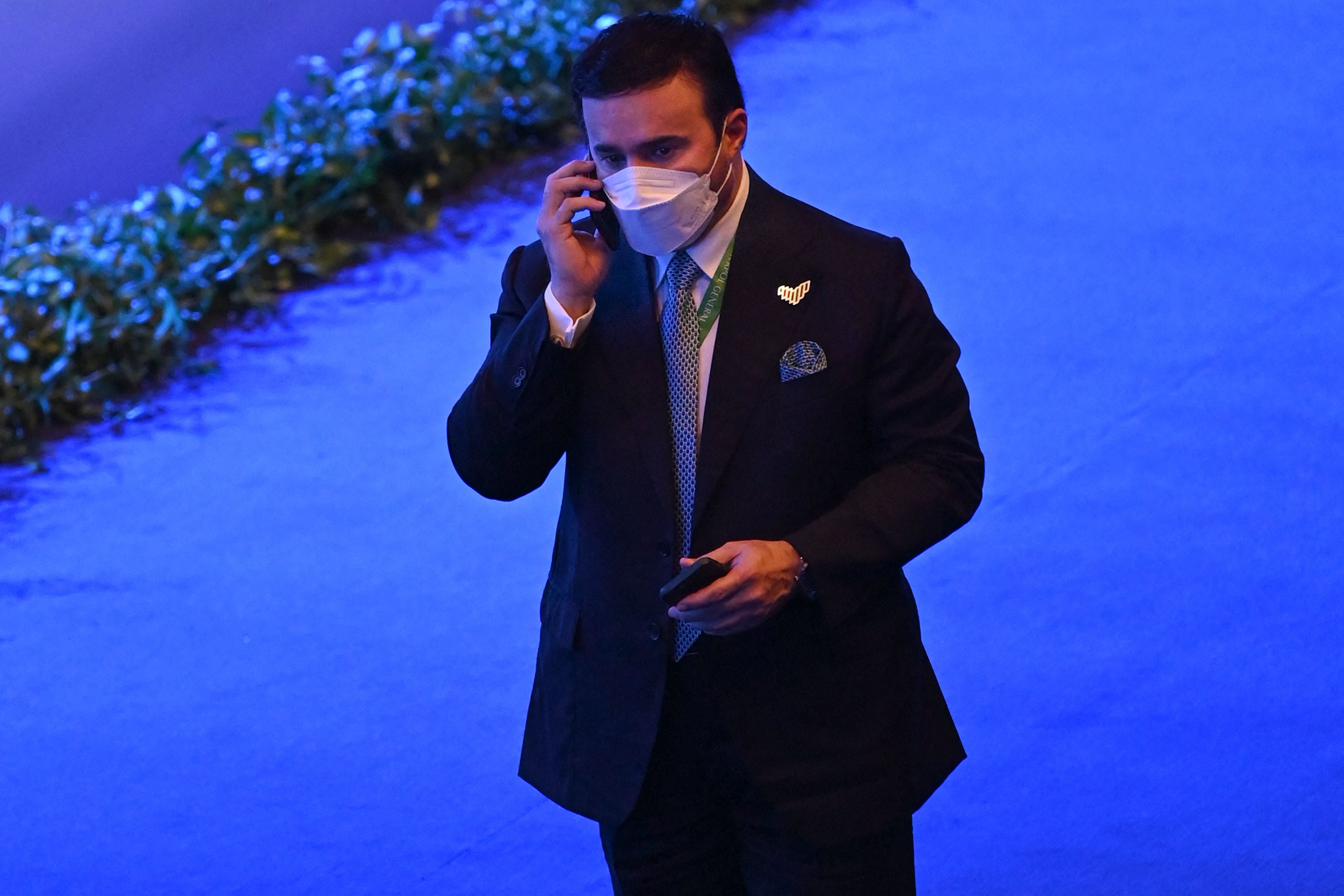Interpol appoints UAE official accused of torture as chief
Maj Gen Ahmed Nasser al-Raisi’s election has been criticised by activists and his alleged victims

A senior UAE security official accused of torture has been elected president of global police agency Interpol, prompting concern from legal experts, human rights advocates and his alleged victims.
Maj Gen Ahmed Nasser al-Raisi serves as inspector general of the interior ministry of the United Arab Emirates, an oil-rich confederation of Arabian Peninsula monarchies known for alleged human rights abuses and breaches of the rule of law.
Despite grave misgivings about his track record, Mr Raisi was elected on Thursday to a four-year term as president of the International Criminal Police Organization, commonly known as Interpol, during an annual gathering of the organisation’s delegates in Istanbul.
“Interpol is an indispensable organisation, built on the strength of its partnerships,” Mr Raisi said after winning the ballot with nearly 69 per cent of the votes cast by the 194 delegates.
“It is this collaborative spirit, united in mission, that I will continue to foster as we work to make a safer world for people and communities.”
Critics are outraged by the election result. The UAE has been repeatedly accused of imprisoning and brutalising political opponents at home and abusing Interpol’s Red Notice arrest warrant system to target dissidents, or even business people, who fall foul of well-connected Emiratis.
This week in Istanbul, two British nationals who were imprisoned in the UAE sought an investigation into Mr Raisi for overseeing their detention and alleged torture.
“Interpol says that it is committed to reform, and has tried to look at its systems and liaise with people who work in this area to reform its systems,” said lawyer Jasvinder Nakhwal, from international criminal law firm Peters and Peters. “This is taking five steps back.”
Activists and law enforcement officials have also alleged that the UAE managed to buy the outcome by throwing around money during flashy trips around the world and outsized donations to Interpol projects. A report this year by former prosecutor Sir David Calvert-Smith allegedly “found coherent evidence that the UAE is seeking to improperly influence Interpol through funding and other mechanisms.”
The Independent approached the UAE’s interior ministry for comment.
Interpol has yet to respond to the allegations against Mr Raisi. It appeared at pains to emphasise that the presidency of Interpol was a mostly ceremonial posting, and that Germany’s Jurgen Stock serves as the organisation’s senior full-time secretary general overseeing day-to-day affairs.
In a press release, Interpol downplayed Mr Raisi’s election, emphasising that the part-time and unpaid president’s role is mostly to chair meetings.
“I look forward to working closely with [Mr Raisi] in ensuring that Interpol continues to fulfil its mandate,” Mr Stock was quoted as saying.
But Interpol discloses little about its inner workings, and Mr Raisi appears eager to impact the organisation’s policies.
In an opinion piece published in a state-owned UAE newspaper, Mr Raisi said he seeks to “modernise” Interpol by using “tech-driven policing,” a possible reference to the ubiquitous electronic surveillance tools deployed by authoritarian states.
“We don’t know what happens behind closed doors, because none of its processes are entirely transparent,” said Ms Nakhwal. “There’s no guarantee or sense of security that there will be proper demarcation or decision-making. We can only guess there will be influence.”
Attorneys specialising in criminal law said they feared the appointment would embolden nations such as China and Russia to abuse and weaponise international law enforcement against innocent people who fall foul of dictatorial regimes.
Two of Mr Raisi’s alleged victims said his election would do irreparable harm to Interpol.
“I don’t know how the Interpol members who voted for [Mr Raisi] don’t feel embarrassed about the choice they made and what this will actually mean for the reputation of the organisation,” said Matthew Hedges, a UK scholar who was held for seven months in a prison under Mr Raisi’s authority and alleges he was drugged against his will.
Ali Issa Ahmad, a UK football fan who was detained for nearly a month in the UAE and allegedly subject to electric shocks, said the country will use the posting to whitewash its human rights record.
“The UAE will use it to make the world think that they are good at policing,” he said.
The UAE has previously insisted that both Mr Hedges and Mr Ahmad were treated fairly and in accordance with its laws.
Sayed Ahmed Alwadaei, director of advocacy at the Bahrain Institute for Rights and Democracy, said that the election of Mr Raisi “sends a dangerous message that a body which is already corrupt will now be driven with a malicious and dictatorial power at its helm”.
“No one is safe from the abuse of Interpol and authoritarian regimes,” he added.
Three European parliament members wrote a letter dated 11 November to the European Commission president, Ursula von der Leyen, to warn of the impact the general’s appointment would have on Interpol.
“The election of General al-Raisi would undermine the mission and reputation of Interpol and severely affect the ability of the organisation to carry out its mission effectively,” they wrote.
Join our commenting forum
Join thought-provoking conversations, follow other Independent readers and see their replies
Comments
Bookmark popover
Removed from bookmarks